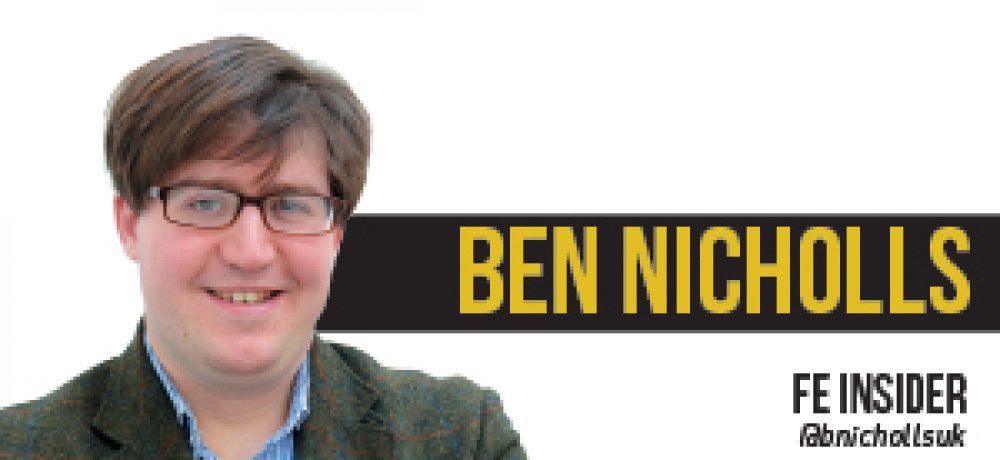Former House of Commons Education Select Committee specialist Ben Nicholls is head of policy at London’s Newham College. He writes exclusively for FE Week, every month
“We are not out to cram facts and knowledge into the girls’ heads all day long, but to help them form strong and kindly characters too,” says Miss Roberts in Second Form at St Clare’s, the fourth book in Enid Blyton’s genteel girls’-school series.
Blyton is often, sometimes justly, maligned for antiquated views, but many of her books — most particularly those inspired by educators such as A. S. Neill — contain remarkably forward-thinking elements.
The principle that education is about more than facts and knowledge will seem obvious to most colleagues in FE. Many of our students come to us because traditional, formal education didn’t provide what they needed. The very name used for our sector — learning and skills — acknowledges that great education is about preparation for life, about recognising how to learn and learning to love learning itself.
And yet increasingly the rhetoric from the government focuses on the facts and knowledge that we, and Miss Roberts back in 1944, know aren’t enough. Before he became Education Secretary Michael Gove was already lauding the ideas of American educator ED Hirsch, whose Core Knowledge Curriculum is so prescriptive that it specifies songs, poems and dates to be learnt in each class.
What this fails to recognise — just like the English Bacc — is that every young person is different. This isn’t, as Mr Gove might have us believe, patronising; it’s pragmatic and personalised. Furthermore, a system like that puts facts and knowledge above the “strong and kindly characters” that Blyton thought education ought to help people to develop. Demeaning and reducing the roles of citizenship, of the arts, of careers guidance, reduces the role and the value of education itself.
Our greatest strength (and weakness) is that we are ‘everything to every person’”
However, I’ll robustly sing Mr Gove’s praises for his vision; it may be arguably wrong, but it is crystal clear. For this, I cannot help but admire him.
I wonder, at the risk of doing myself out of a job and any accrued favour, if our sector has quite such a clear vision. A colleague suggested recently that our greatest strength (and weakness) is that we are “everything to every person”. This might allow high levels of participation and success in a range of provision, but makes it difficult to express our vision for the sector. Nor do I think we should wait for politicians — even when, as with the Labour party’s skills taskforce, they engage with educators — to articulate that vision for us. That’s our job.
The raft of policy initiatives, from traineeships to direct 14 to 16 recruitment, and the number of colleges not jumping on to these bandwagons because, in the words of one, “we already do them”, shows how diverse the sector is.
But unless we begin to answer some questions, that diversity may not be enough. What, for example, do we really see as the role of higher education in FE? Do we want to be called polytechnics, and what does that label mean for our mission? Do we wish, in light of small A-level numbers at some colleges and the growth of many sixth forms, to continue offering traditional academic subjects at all? Yes, the new Education and Training Foundation must answer these, as must our representative bodies, but we in colleges need to know the answers ourselves.
However, we do know is the value of what we do and, unlike the Education Secretary, we have the confidence of many in doing it. Perhaps Enid Blyton trained in the FE sector . . . and perhaps she should have stood for Parliament.









Your thoughts